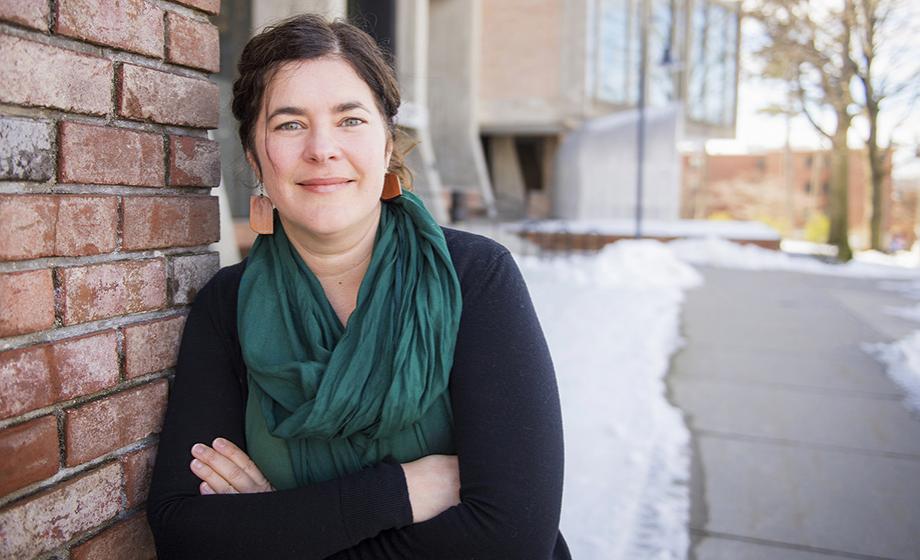
Living in Morocco for five years, Leslie Gross-Wyrtzen witnessed the plight of migrants flowing through the country en route to Europe — as they were subjected to horrific violence at the hands of smugglers and endured life-threatening travel conditions. Their experiences made her want to take action.
The second-year doctoral student in Clark University’s Graduate School of Geography hopes her research will illuminate how borders impact the everyday lives of people all over the world, especially in Africa.
“I’m continually learning something that changes my perspective. I was recently in Jordan and seeing how a country of six million people can welcome almost a million refugees from Syria into their country was at once stunning and humbling.”
“I want to contribute to making a case for more permeable borders not just for the privileged few, but for everyone,” she says. “I think we’re going to have to grapple with this as global climate change increasingly disrupts livelihoods and displaces more people from their homes.”
Gross-Wyrtzen’s dissertation proposal, titled “Bordering Blackness: The production of race in the EU-Morocco border regime,” will examine how European Union border policy regarding sub-Saharan and Syrian migrants and refugees is applied in Morocco. She’s “particularly interested in the role race and gender play in the creation of migrant spaces and migrant identities.”
Gross-Wyrtzen returned to Morocco last summer to observe a migrant aid group in Fes and did more than just take notes.
“I got to see first-hand how difficult migrants’ lives are,” she says. “We ended up providing first aid for wounded people who had encountered border police, and I visited some of the bidonvilles, or shantytowns, where they live.”
She says experiences like that leave a lasting impact.
“I’m continually learning something that changes my perspective,” Gross-Wyrtzen says. “I was recently in Jordan and seeing how a country of six million people can welcome almost a million refugees from Syria into their country was at once stunning and humbling.”
Gross-Wyrtzen says her geography advisers, professors Jody Emel and Deborah Martin, challenge her to pursue her research with rigor, while other faculty members also have offered advice on her research proposals and articles. “Even faculty members I haven’t worked with yet have expressed interest in my research,” she says.
After completing her program, Gross-Wyrtzen, who earned both bachelor’s and master’s degrees at the University of Texas at Austin, plans to go into academia while continuing activist research among migrants in Morocco. She believes her Clark experience — from conference presentations to being a teaching assistant to interacting with colleagues across different research specialties – is preparing her well for the future.
“I get to learn new things and engage in debates with students and faculty who are equal parts brilliant thinkers and caring individuals,” she says.


